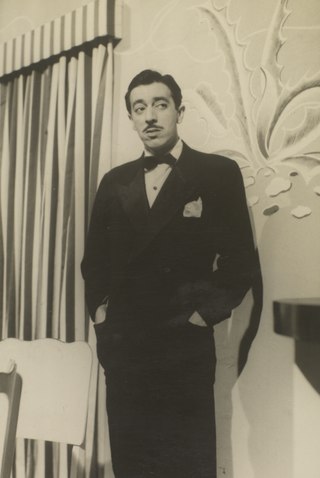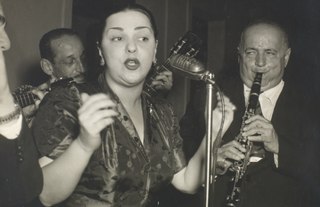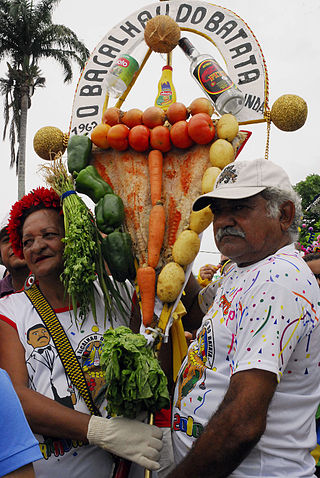
Caipirinha is a Brazilian cocktail, of São Paulo origin, with cachaça, sugar, lime, and ice. The drink is prepared by mixing the fruit and the sugar together, then adding the liquor.

Daniela Mercury is a Brazilian singer, songwriter, dancer, and producer. In her solo career, Mercury has sold over 11 million records worldwide, and had 24 Top 10 singles in the country, with 14 of them reached No. 1. Winner of a Latin Grammy for her album Balé Mulato – Ao Vivo, she also received six Brazilian Music Award, an APCA award, three Multishow Brazilian Music Awards and two awards at VMB: Best Music Video and Photography.

A samba school is a dancing, marching, and drumming club. They practice and often perform in a huge square-compounds and are devoted to practicing and exhibiting samba, an Afro-Brazilian dance and drumming style. Although the word "school" is in the name, samba schools do not offer instruction in a formal setting. Samba schools have a strong community basis and are traditionally associated with a particular neighborhood. They are often seen to affirm the cultural validity of the Afro-Brazilian heritage in contrast to the mainstream education system, and have evolved often in contrast to authoritarian development. The phrase "escola de samba" is popularly held to derive from the schoolyard location of the first group's early rehearsals. In Rio de Janeiro especially, they are mostly associated with poor neighborhoods ("favelas"). Samba and the samba school can be deeply interwoven with the daily lives of the shanty-town dwellers. Throughout the year the samba schools have various happenings and events, most important of which are rehearsals for the main event which is the yearly carnival parade. Each of the main schools spend many months each year designing the theme, holding a competition for their song, building the floats and rehearsing. It is overseen by a carnavalesco or carnival director. From 2005, some fourteen of the top samba schools in Rio have used a specially designed warehouse complex, the size of ten football pitches, called Samba City to build and house the elaborate floats. Each school's parade may consist of about 3,000 performers or more, and the preparations, especially producing the many different costumes, provide work for thousands of the poorest in Brazilian society. The resulting competition is a major economic and media event, with tens of thousands in the live audience and screened live to millions across South America.

Grêmio Recreativo Escola de Samba Acadêmicos do Salgueiro, popularly known simply as Salgueiro is a popular samba school from Rio de Janeiro, Brazil. It was established on March 5, 1953 from the merger of Morro do Salgueiro's two samba schools called Azul e Branco do Salgueiro and Depois Eu Digo, which then merged again with Unidos do Salgueiro. It first paraded in 1954 with the Romaria à Bahia samba. The school's motto is "Not better, nor worse, just a different school".

José Lewgoy was a Brazilian actor. He is recognizable to many art-house cinema fans for his role as Don Aquilino in Werner Herzog's 1982 film Fitzcarraldo.

Oscarito, stage name of Oscar Lorenzo Jacinto de la Inmaculada Concepción Teresa Diaz was a Spanish-Brazilian actor, considered to be one of the most popular comedians of Brazil.

Linda Batista, born Florinda Grandino de Oliveira was a Brazilian popular musician.

Hugo Carvana de Hollanda was a Brazilian actor and film director. He appeared in more than 110 films and television shows between 1954 and 2014.

Rosa Lúcia Benedetti Magalhães was a Brazilian professor and artist. She is best known as the most successful carnival designer in Rio de Janeiro, with six championships won since 1984, when the Sambadrome Marquês de Sapucaí was built. Designing carnival parades since 1971, Magalhães liked telling historic events in her designs, such as the discovery of Brazil (2000), the life and creations of Hans Christian Andersen (2005), Don Quixote (2010), and the corruption scandal that led to the construction of the Versailles Palace in France (2017).

Grêmio Recreativo Escola de Samba Unidos de Vila Isabel is a samba school in Rio de Janeiro. It was thrice champion of the Special Group and is currently headquartered in Boulevard 28 de Setembro in Vila Isabel.
John Herbert was a Brazilian actor, director and producer.
The Nikkey Shimbun or the Jornal do Nikkey was a Japanese language newspaper published in Liberdade, São Paulo, Brazil. It was one of two Japanese newspapers published in that city, the other being the São Paulo Shimbun. On December 18, 2021, the newspaper printed its last edition.

Dirce Grandino de Oliveira, known as Dircinha Batista, was a Brazilian actress and singer.

Elvira Olivieri Cozzolino, better known by her stage name Elvira Pagã, was a Brazilian vedette and actress, singer, writer and painter. She was the first Rio Carnival Queen, the first woman to wear a bikini in public, and one of the first women to have cosmetic surgery in Brazil. Talented and controversial, she broke the status quo and faced the reigning "machismo" with fearless audacity during the Brazilian military dictatorship and the revolutionary 1960s, where she lived with determination and courage. Pagã retired from public life, wrote and painted in her later years, dying a recluse.
Canibália was a concert tour by the Brazilian singer Daniela Mercury, beginning on August 7, on Citibank Hall, São Paulo. Eight days after, where she made another concert at Citibank Hall, she went to Rio de Janeiro and then took the tour to Portugal, where she performed in five cities, right after, back to the Latin American, European and North American. The tour counts with the participation of dancers, who danced the choreographies developed by Jorge Silva, recognized choreographer from Bahia. Gringo Cardia, the developer of the five covers of the album Canibália, was responsible for the elaboration of the scenario of the tour. On March 10, 2011, Mercury began her new tour Canibália: Ritmos do Brasil Tour to promote her new album of de same name recorded live in Copacabana Beach, in Rio de Janeiro.

Antônio Carlos Moreira Pires, better known as Moraes Moreira, was a Brazilian musician and songwriter. During the 1970s he played guitar and sang in the band Novos Baianos, after which he embarked on a solo career recording 29 albums. Moreira was involved in recording 40 full-length albums with Novos Baianos and Trio Elétrico Dodô e Osmar, and two more albums with guitarist Pepeu Gomes. Moreira was one of the most versatile composers of Brazil, mixing the genres of rock, samba, choro, frevo, baião, and classical.

The 2017 Brazilian general strike took place on April 28, 100 years after Brazil's first general strike in June 1917. The movement was a protest against reforms of labor laws, which were later adopted and social security proposed by Michel Temer government and pending in National Congress of Brazil.

Bacalhau do Batata is a carnival block from Olinda. It parades on Ash Wednesdays at noon, precisely at the after the official carnival end. The block was in 1962 founded by the waiter Isaias "Batata" Ferreira da Silva, whom worked in the regular carnival days since, and therefore could not enjoy the festivities. The block's symbol is a dried cod ornamented with potatoes, carrots, paprikas, and other vegetables. "The Batata Cod was founded in 1962. We, who could not play because they worked on holidays, joined in the joke. I was part of the foundation," recalled one of the directors of the block, Antonio Lucena, 69, while it held the official banner of the association, made with vegetables and pieces of natural cod.

Miss Amazonas is a Brazilian Beauty pageant which selects the representative for the State of Amazonas at the Miss Brazil contest. The pageant was created in 1955 and has been held every year since with the exception of 1990, 1991, 1993, and 2020. It is also the first and the oldest pageant in the state. The pageant is held annually with representation of several municipalities. The competition was organized for many years by the ceremonial Lucius Gonçalves as a director, but in 2019, it was TV Bandeirantes Amazonas who carried out the contest. Since 2021, Miro Sampaio has been the State Director. Amazonas is the only state in the Northern Region of Brazil to have two crowns in the national contest:















